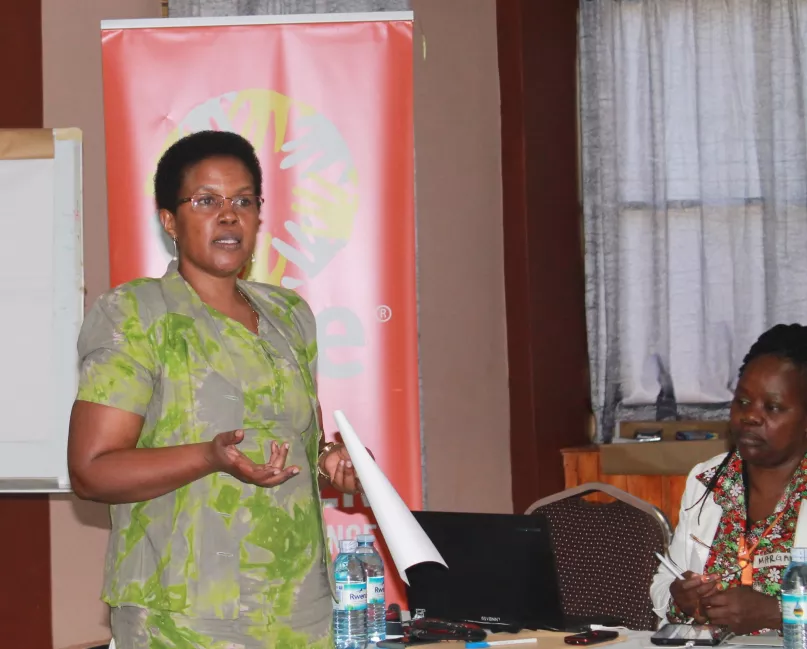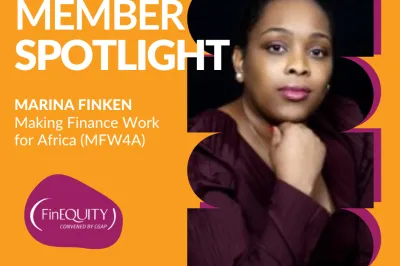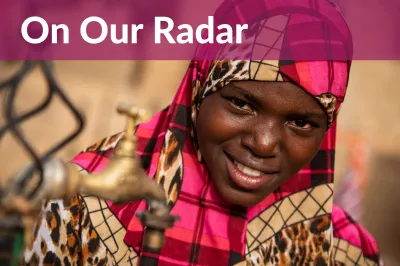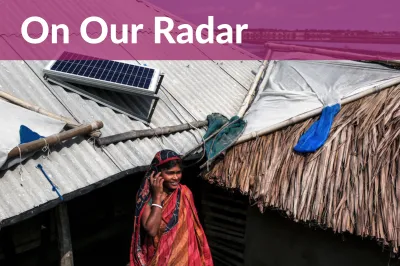Grace Majara Kibombo of CARE USA

FinEquity Member SPOTLIGHT INTERVIEW with Grace Majara Kibombo of CARE USA
FINEQUITY - Please tell us about the work that CARE does, especially as it relates to Women’s Financial Inclusion.
GRACE - CARE works to help the poorest people in the world, especially women and girls, get out of poverty. We work with nearly 68 million people in 100 countries. One key element in CARE’s approach is helping women get access to formal and informal finances. This starts with the Village Savings and Loan Associations (VSLA), where groups of 20-30 women get together to save small amounts of money (sometimes just a few cents a week) that they lend to each other. We’ve supported more than 8.4 million women to join these savings groups, and every year they mobilize nearly half a billion dollars. We also help link these women together to increase their ability to lead in communities and introduce them to formal financial services like banks and mobile money as individuals or in their groups.
FINEQUITY - What role do you play at CARE and how did you get into this line of work?
GRACE - I am currently working with CARE USA as Senior Technical Advisor based in Kampala, Uganda. I was first exposed to CARE's financial inclusion programming for the poor in 1999 when I joined CARE Uganda and was part of the frontline staff that introduced Savings Group in Uganda. Being a VSLA member myself and working with other VSLA women has provided me with insights into how savings groups are a primary source of financial services for millions.
I was also involved in driving the coordination and advocacy in Uganda’s savings group space for official recognition by the government, as demonstrated through the Self Help Group Sub-committee of the Microfinance Forum hosted by the Ministry of Finance Planning and Economic Development.
From 2009, I have worked within CARE and other peer organizations like Plan International to spearhead strategic partnerships with private sector players such as Barclays Bank and others like Mobile Network Operators. Together we have been able to co-create innovative solutions and adapt financial services to meet the needs of unbanked women and youth.
FINEQUITY - What role does FinEquity play in your work?
GRACE - FinEquity provides CARE with a platform to share our experience on how social norms impact women’s financial inclusion and what CARE does to shift them. We have really benefited from exchanges through webinars and the Social Norms Working Group.
FINEQUITY - We were very impressed by how quickly CARE mobilized and produced critical guidance on Covid-19. Tell us a bit about the process behind developing and sharing these useful tools with the wider community.
GRACE - We quickly drew upon expertise from across the organization and set up manageable small groups with clear leadership and roles in generating the initial ideas. We also got quick input from our forefront staff who immediately started innovating and working with VSLA members to adapt to the unfolding situation with COVID 19. Then we held internal meetings and webinars to generate further ideas before running everything by technical experts for review, input and validation. Then we shared all of our information internally and externally.
FINEQUITY - What are CARE's top priorities related to women's economic empowerment and resilience in the coming months, and how have they shifted given the current COVID-19 crisis?
GRACE - CARE is always focusing on helping the poorest and most vulnerable women get access to finance, dignified work, and income opportunities that work in their lives. This includes work with savings groups, garment factory workers in Asia, domestic workers in Latin America, and agricultural value chains all over the world. These priorities are even more acute in the current situation as everyone experiences impacts from the COVID 19 pandemic. All these priorities rest on a foundation of women’s empowerment, where women have the skills, support, and policies they need to make decisions in their lives and communities. Their right to have a seat at the table shaping decisions, and the social norms that support gender equality, must not be neglected during the COVID crisis and recovery.
FINEQUITY - Do you have a “success story” you’d like to share?
GRACE - Yes I do! The first time I met Jane (not her real name) was under a big tree offering a cool shade in a village in the Rubirizi district of South Western Uganda, in July 2018. A petite woman in an ankle-length black skirt, red t-shirt and matching shoes, Jane had come for a meeting of her Village Savings and Loans Association (VSLA).
Having taken out a loan of Shs 15,000 four weeks prior, Jane had come to repay Shs 16,500 – the principal sum, plus 10% interest. “I used the loan to stock up food for my chicken” she explained. “I sold eggs from my chicken project to pay back the loan and was able to make some little profit, most of which I used to buy more shares in the group, and some I saved in a bank account that I opened with Post Bank. Before joining the VSLA, I didn’t imagine that I would ever save my own money.”
At this point we invited Jane to participate in financial training from CARE including budgeting, debt management, financial negotiation, planning and goal setting. Soon she was introduced to a bank product commonly known as “Women in Progress” or “digital sub-wallet,” which allowed her to save for her multiple needs.
Despite participating in VSLA for three years Jane told me that she had “had no power to decide on how to use my savings let alone income from my farming activities. All the decisions were being made by my husband, sometimes influenced by my mother-in-law who stays with us”. We invited Jane and her family members (husband, mother-in-law and children) to participate in household dialogue sessions that addressed power dynamics, communication and decision making. These had a great impact, which was clear to me when I visited Jane at her home a year later.
“I can’t believe that we now sit and discuss our household financial needs and resources together with my husband. My mother-in-law is also ok with what is going on. She no longer says that I have bewitched her son. We communicate easily and our love for each has improved because of good communication” excited Jane narrates.
Though the husband was hesitant to participate in the dialogue session, he does not regret to have accepted. He told me “we have achieved a lot as a family which would not have been possible without us sitting and planning together. The sessions made me realize that prioritizing my friends over my family was wrong. I also realized that I had wrong friends whose agenda was just to drink alcohol. I have stopped socializing with them and will get new good ones”.
A year after the intervention, Jane has her own bank account and is saving for goals she set together with John and his mother, including a better education for her children and buying their own land to build a permanent home.
Grace holds a master’s degree in Natural Resources and Sustainable Agriculture from the Agricultural University of Norway, and a bachelor’s degree from Makerere University.


